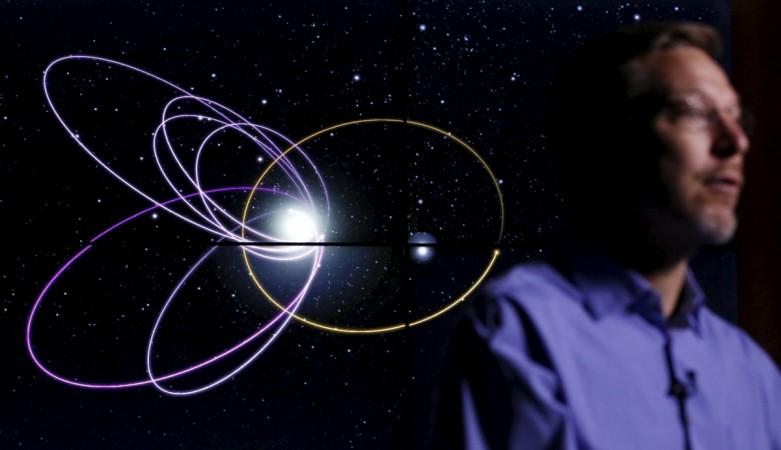
The mysterious Planet Nine (P9) is believed to have caused a tilt in our solar system, according to the researchers from the California Institute of Technology in Pasadena, California.
Way back in January, the astronomers disclosed some proof regarding the existence of another unknown planet in our solar system. According to guesstimates by the researchers, when compared to Earth, Planet Nine is 10 times more massive and 500 times farther away from the sun.
A previously conducted research states that the unofficial Planet Nine is likely to have a highly tilted orbit in comparison to the eight officially declared planets of our solar system, which possess a flat and thinner zone. The researchers tried relating the tilted orbit of Planet 9 along with the slanting observed in another part of the solar system.
"Planet Nine may have tilted the other planets over the lifetime of the solar system," said the lead author of the study, Elizabeth Bailey, an astrophysicist and planetary scientist at the California Institute of Technology in Pasadena.
The previously done research reveals that the zone in which these eight planets orbit the Sun has inclined by around 6 degrees in contrast to the sun's equator. These factors have remained mysterious from quite long. Even the bodies existing in the Kuiper Belt point towards the prevalence of an unknown planet revolving around the sun.
The Kuiper Belt is a region which exists beyond Neptune's orbit, it is disc-shaped and comprises icy celestial bodies including comets and dwarf planets like Pluto.
According to the findings by Bailey and her team, who used computer models to highlight the tilt in the solar system, this six degree slant is caused by P9's gravitational influence which took place over 4.5-billion-years-ish lifetime of the solar system.
She came up with other reasons that might have caused this tilt. One of the reasons states that this wobble happened due to the electrically-charged particles affected by the magnetic field of the young sun. Bailey elucidated that these charged particles of the sun might have reacted with the existing dust and disk of gas which lead to the rising of the planets, leading to the wobble in the solar system.
The other theory she came up with states that the mass of the nascent sun's core has been imbalanced which caused this inclination.
"However, all these other ways to explain why the solar system is tilted are really hard to test — they all invoke processes that were possibly present really early in the solar system," Bailey said according to Space.com.
"Planet Nine is the first thing that has been proposed to tilt the solar system that doesn't depend on early conditions, so if we find Planet Nine, we will be able to see if it's the only thing responsible for the tilt, or if anything else may have played a role," she added.
The scientists presented the above findings in a press conference at the American Astronomical Society's (AAS) Division for Planetary Sciences (DPS) and European Planetary Science Congress in Pasadena, California.

















